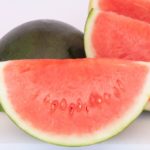Don’t Throw the Watermelon Seeds – They are Miraculous Remedies
Watermelons are some of the most popular fruits. They are sought-after in the hot summer days, but they can also be consumed in the rest of the year. People always consume the fruits, but throw away the seeds. The specialists warn us that this is the worst thing we can do because watermelon seeds are a miraculous remedy for our kidneys.

Watermelon seeds contains zinc, iron, omega-6 fatty acids, proteins and fibers that are absorbed immediately. Besides the antioxidant properties, the watermelon seeds are also diuretic and will protect against kidney stones. Moreover, the seeds have the largest amount of lycopene as compared with any other fresh vegetable or fruit. Therefore, they can prevent heart failure. The watermelon seeds also contain selenium, essential fats and vitamin E that fights against the free radicals.
Watermelon Seeds – Properties and Usage
The best recipe to use the watermelon seeds is to let them dry and then grind them in the coffee grinder. You can mix that powder with yogurt, milk or add it in a fruit smoothie. Remember to consume it regularly.
The watermelon seeds are rich in proteins. 150 grams of dried seeds contain 30.6 grams of proteins – 60% of the daily recommended dose. They are also rich in the B-complex vitamins that help the nutrients become energy.
The most abundant mineral in these seeds is the magnesium. A cup of seeds contains 140% of the daily dose of magnesium. Other important minerals that are included in the watermelon seeds are phosphorus, iron, potassium, sodium, manganese and zinc.
The proteins in the watermelon seeds contain essential amino-acids that have the capacity to regulate the high blood pressure and ease the pain in the small arteries. The seeds contain tryptophan, glutamic acid and lysine.
Last, but not least, the watermelon seeds contain healthy fats. This is the most surprising fact about these seeds. In only 150 grams of dried seeds, there are 51 grams of monounsaturated fats, polyunsaturated fats, omega-6 fatty acids and omega-3 fatty acids.




Good to know, thank you 🙂
New varieties now are seedless
Don’t like the seedless variety don’t taste as nice as the one with seeds
Very informative….ta
My comment is actually a question: is the skin of the seed digestible??? do you mean to grind the whole seed , without taking the hard skin off?
Thank you